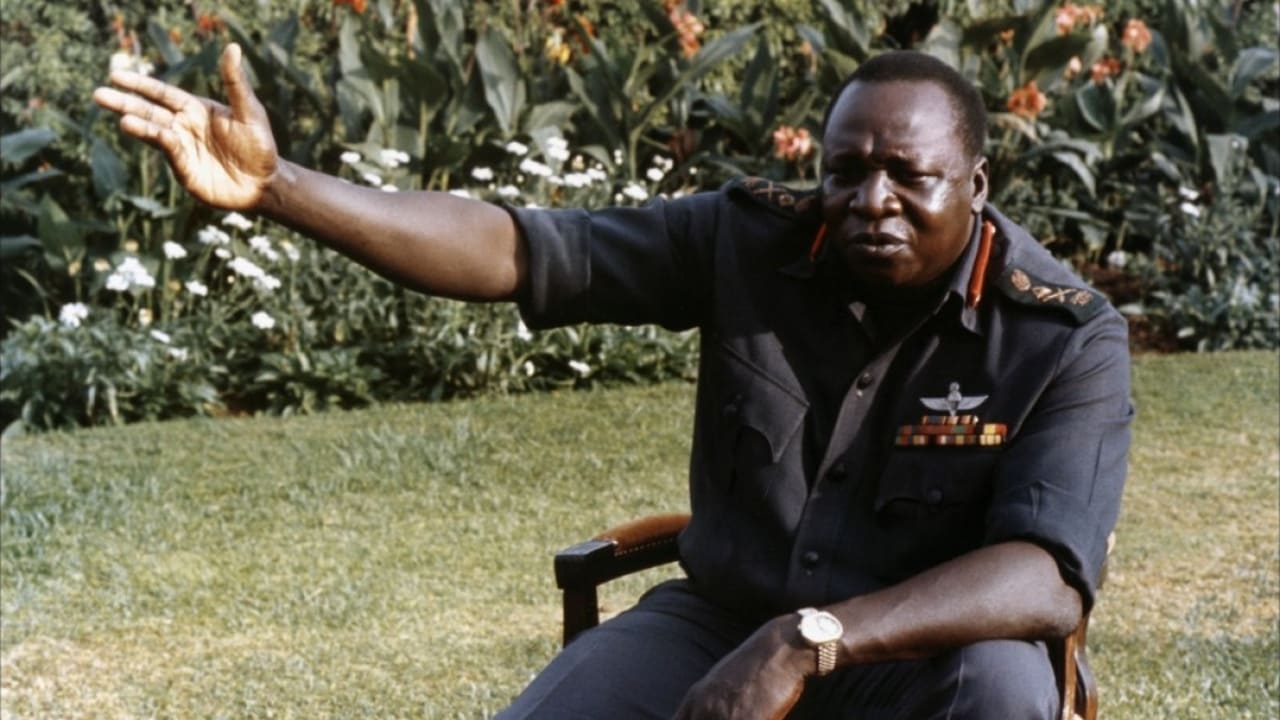

This documentary film is extraordinary in its own right. However, it is the interviews with director Babet Schroder (found on the DVD release of the film), specifically his retelling of the events around the time of the premiere of the movie in Paris, that propel this film to the level of incredible.Idi Amin's Autoportrait is most relevant today for its capacity to show an instance before more secretive, media-savvy dictators became the norm. Leaders today are of course still perfectly willing to say absurd things on film but, unlike that of Idi Amin's Autoportrait, today's spin is formidable. Key to this film's relevance is that one's imagination need not go far to consider what similarly candid documentaries of certain infamous dictators might look like if footage of them also escaped editing by political pressure. Following the premiere, this film was temporarily edited due to pressure from Idi Amin but thankfully was later restored to become an incisive portrait of the man. Such a portrait of any world leader would probably be quite difficult if not impossible today, making it a very relevant benchmark for those interested in how today's dictators interact (or don't) with media they don't fully control. Among other things, this film is especially of use for those interested in the extremes of state-society relations.
... View MoreI have no idea what the "irrelevant now" comment means. That comment in itself is "irrelevant" and quite "idiotic." Meglomaniac dictators will be around forever. This was the rarest of rare portraits of one. It wasn't a single interview on 60 Minutes, it was a long month-long look into the dictator.While it doesn't go into the holocaust he perpetrated on the Ugandans (a very valid point above,) the final meeting with the doctors shows exactly the fear and paranoia he felt. It is in the final scene; with Amin breathing heavily into the microphone, gulping down spit, eyes darting around the room in fear, that we can see what led him to kill 300-500,000 of his own people.Also, when Idi does his Crocodile Hunter impression ("there are more crocodiles here than anywhere in ze vhurld") it is more jarring because it's where and whom he fed the bodies of those he murdered.Keep in mind as well, that the murders were only beginning when the film was made. The film is effective in showing what led to the holocaust of the Ugandan people.
... View MoreIn anticipation of a career best performance by Forest Whitaker in "The Last King of Scotland", I hunted down the Criterion of this remarkably pieced together composite of General Idi Amin Dada, the forgotten Ugandan tyrant who seized power in the early 70s and ruled it with a murderous fist until his eventual ouster. The records speak for itself. The genocide, the corruption and the paranoid executions of his confidants find its way into the documentary but Barbet Schroeder's unique and darkly humorous focus always stays on the hauntingly paradoxical look at the avuncular disposition of the despicable despot.Essentially, and with the need to be succinct, the General comes across as a child trapped in the man's body. His small-minded view of the world, his brio for military games and his risible ballroom antics show an incomprehensible rationale for his iron grip. His scheming seductions to the media and to the outside world come through in full force as he looks for the camera before speaking. Idi Amin does not deny his Machiavellian approach to establishing his order but chooses not to dwell on them as he thinks his answers through carefully and elaborates on his imagined successes. Often, he trails off into a deranged rail on foreign countries and other African establishments but conducts himself with a manner of undeniable presence that's as compelling as it is repelling.The Iranian born director of German extraction is ironically simpatico with Idi Amin's preference of people as Schroeder prods him ever so gently with nervous laughter, like one might daringly try to interest a grumpy Doberman in a game of catch. Schroeder's discernment of the situation he was in with the vain General and his eventual manipulation of him allowed his documentary crew access to a conclave of the state's ministers and military higher-ups. It is where Idi Amin, although aware of the camera's burning gaze, warns death on spies and warns "removal" of inept ministers, leading to Schroeder's unnerving revelation as his camera lingers on the cold, brutality of a killer.Much of the documentary's humour is inherent. Schroeder does not make any allusions to satire, or even impose a caricature of the man. No, Idi Amin does that all by himself. Armed with a razor sharp wit, he jokes with rooms of people, even resorting to self-deprecating humour that really only he could make. A natural charmer, he comes across early on as the jovial sort, with a disarming innocence that's staggeringly shattered when he takes up arms and spews anti-Israeli sentiments. While extolling the virtues of his mind-boggling economic and military policies, he does it without understanding how and why they do not work. And no one dares to advise him on that either. Very telling is the scene on the boat when he asks the camera crew if he should "ask" the crocodile to leave.With an ambition the size of Napoleon, Idi Amin considered himself a major leader in the world stage but there's something so terribly amateurish about his regime, much like many other African regimes back then. We don't get to know his precise political thought, he does mention not entirely following the rigidness of communism and capitalism but all it does is underline his resolve to control his country by his terms. Although he lived mainly through the atavistic displays of force, he did show some progressive ideas such as implementing more women in the managerial workforce, albeit only in the hospitality industry. Mixing his awe of modernisation (risking his country's reserves) and grandiosity with his reverence for his region's tradition, Idi Amin saw himself as a revolutionary.The back-story of this documentary is almost as gripping as the film itself. Schroeder befriended Idi Amin, although a tenuous relationship, he gets him to open up about the things that he wouldn't tell his own cabinet of ministers. He partakes with the General in admittedly staged scenes of overt celebrations and letting him direct himself in exchange for getting him in every shot aside from the scenery (masterfully photographed by Néstor Almendros).After the filming, Schroeder found himself in a predicament when word got back to Idi Amin after its initial release in France and London that its audience found it to be "funny like a comedy". When his demands for cuts were not met, Idi Amin rounded up the French living in Uganda and threatened their lives if Schroeder did not relent. And of course, he did. Thankfully it was restored after Idi Amin's exile from the country. Even under the restrictive guise of a self-portrait, Schroeder masterfully instills a subtext that even before the cuts, Idi Amin could not properly discern because of his ego. The awkward gazes and listless looks of his employees and citizens are an inside joke for us but a reality for the megalomaniac. Schroeder lets Idi Amin present to us his own insanity within the smiles and guffaws.Even as the film fails to fully structure the whys and hows of Idi Amin's maniacal views on the world, it does hint at the harsh bleakness of colonialism leaving a bloodstain with each of Idi Amin's actions. But what makes this documentary much more compelling than any straight observation of a tyrannical authoritarian is its own fascination with the subject. Captivated by Idi Amin's charisma, and the creeping sense of dread when the truth is finally mined, the crew found a goldmine of ideas relating to violent dictators throughout history as this documentary shaped up to be a portrait of not just Idi Amin but of all rulers. Controversial and foreboding scenes of him inviting Palestinian terrorists bore fruit years after the release of the film and a chilling symmetry with George W. Bush's war on terror is gleaned when Idi Amin exclaimed that dreams vaticinated his wars.
... View MoreI saw this movie in Israel in 1975. At the time Amin was in his heyday and because of his relationship with Israel the film was very interesting, featuring interviews with Amin and him showing off his armed forces.Today, with Amin a nobody in Saudi Arabia, this film is but an asterisk of history.
... View More